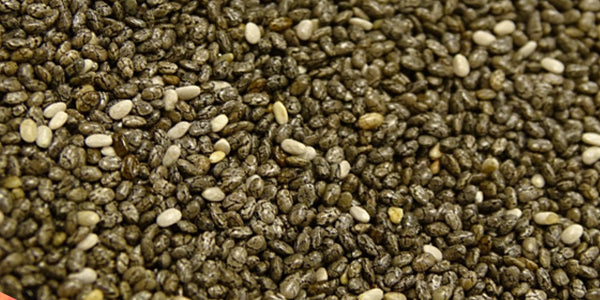Our diet is extremely important for almost every aspect of our health, from ensuring physical fitness to maintaining mental wellness. But for those of us living with inflammatory conditions like gout, diet can have an even more important role to play. In fact, switching to a gout-friendly diet is one of the best things we can do to prevent painful gout flare-ups, which may leave you wondering which foods are best for gout.
For example, could popular superfoods also be good for gout? In this article, we’re looking at chia seeds and gout to better understand if this nutritionist's favourite could help manage and prevent gout attacks.
What are Superfoods?
The term “superfood” is applied to food products that are considered to be highly nutritious. While there aren’t strict criteria for what constitutes a highly nutritious food, superfoods are generally a good source of key nutrients like protein, fibre, iron, magnesium, copper, antioxidants, and crucial vitamins.
Some nutrition experts point out that with no legal definition to classify superfoods, the term may be somewhat arbitrary. Nonetheless, there is no denying that adding such foods to a balanced diet can only be a good thing. Some well-known “superfoods” include turmeric, spirulina, quinoa, and, of course, chia seeds.
Chia Seeds and Gout-Friendly Diets
Gout is caused by a build-up of uric acid in the blood. Over time, this acid can begin to accumulate in the joints - particularly in the feet, forming sharp crystals which cause pain, swelling and inflammation. Heightened uric acid levels can occur for a number of reasons, including kidney dysfunction, genetics, and an excess of purines in the diet.
Gout flare-ups can be debilitating and significantly affect your mobility; therefore, effective symptom management and prevention techniques are of the utmost importance. Common management strategies include staying hydrated, taking regular supplements, and making healthy dietary adjustments. But let’s get back to the question at hand: Are chia seeds good for gout?
Chia seeds contain high levels of an Omega-3 fatty acid called alpha-linolenic acid (ALA), which represents around 75% of their fats. This makes chia seeds the best plant-based source of Omega-3 fatty acids! ALA is known to have anti-inflammatory properties which may help to ease some gout symptoms.
Furthermore, ALA has been found to inhibit urate transporter 1 (URAT1), a major transporter involved in the reabsorption of uric acid. This indicates that ALA may be helpful in reducing blood uric acid levels; however, more research is needed to confirm the significance of this effect.
Other potential benefits of chia seeds
Like many other seeds, chia seeds contain a relatively high protein content (around 19%). They also contain all nine essential amino acids, making them a high-quality plant-based source of protein.
Furthermore, chia seeds contain several antioxidants including chlorogenic acid which may help to lower blood pressure, caffeic acid which possesses anti-inflammatory and anti-cancer properties, quercetin, which may help to lower the risk of heart disease, and kaempferol, which has been associated with a decreased risk of cancer and other chronic diseases.
Conclusion
Current evidence indicates that chia seeds are a welcome addition to a gout-friendly diet. Not only are they a great source of fibre, protein, fatty acids, and antioxidants, but they are also low in purines - a precursor to uric acid.
However, while superfoods can be an excellent source of many vital nutrients, it is important to note their limitations. For example, it should not be assumed that consuming chia seeds or any other superfoods will make up for an otherwise unhealthy diet, nor should they be considered a cure for any health problem. These nutrient-dense foods should always be consumed as part of a healthy, balanced diet.






